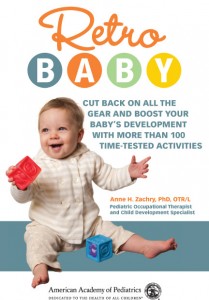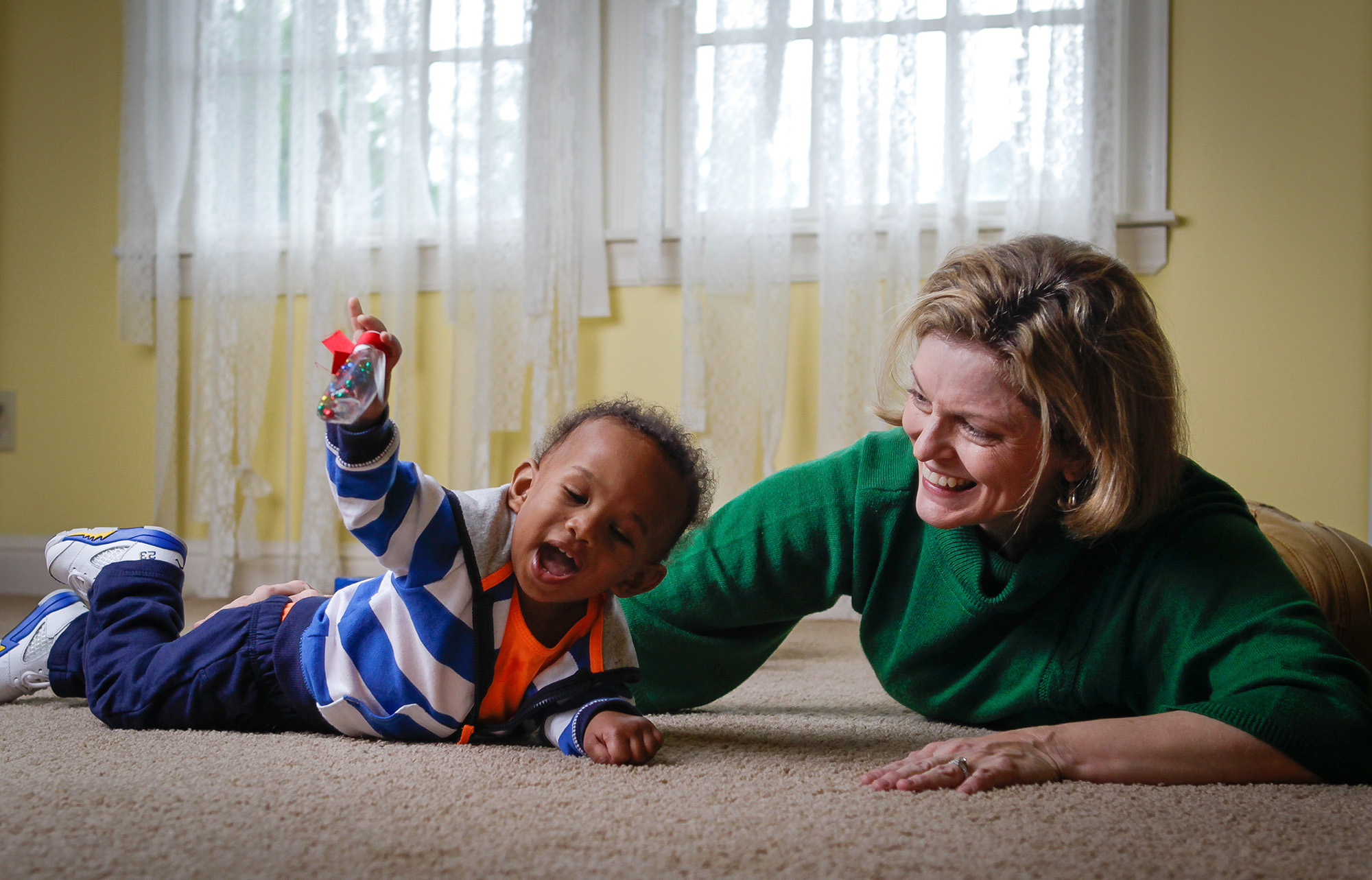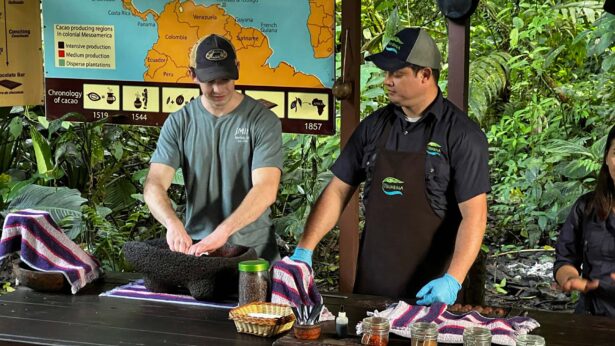By Peggy Reisser Winburne
While working in the Shelby County Schools System in the late ’90s, occupational therapist Anne Zachry noticed she was seeing a lot of young students who had trouble controlling the muscles of their arms and hands well enough to write legibly. Curious, she decided to investigate. Her curiosity eventually gave birth to a book, Retro Baby, which was published in October 2013 by the American Academy of Pediatrics (AAP).
“I wrote this book to spread the word about the importance of limiting screen time and baby gear use with infants under 2 years of age. I think if parents know better, they do better.”
—Dr. Anne Zachary
Zachry, now an assistant professor of occupational therapy at the University of Tennessee Health Science Center (UTHSC) in Memphis, surveyed the parents of those children and made a surprising discovery. Many of the children had spent considerable time as infants in car seats, carriers and bouncers and very little time sitting up on their own, having “tummy time” play on blankets or being carried around by their parents. As a result, their hand and arm muscles were weak, and they would need therapy to catch up. Modern-day parenting with all its gear and gadgets had hindered development instead of helping it. “I discovered that many parents do not understand the dangers of extended equipment use and overexposure to technology,” said Zachry, the mother of three, ages 24, 16 and 14. A car seat is meant for travel time, she explains. But if a baby is in one much of the day, he can see only what is straight ahead; has no need to hold himself erect, support head and neck muscles, or use his arms and hands; and may wind up with a flat spot on the back of the head. A baby carried on mom’s hip is forced to develop back muscles to stay erect, must use neck muscles to turn his head, and is more likely to make eye contact and reach out using arms and hands, developing fine motor skills.
Zachry wanted to get the word out to parents about the benefits of a back-to-basics approach when bringing up baby—fewer gadgets and gear, more bonding and play the old-fashioned way. She decided to write a book. “I wrote this book to spread the word about the importance of limiting screen time and baby gear use with infants under 2 years of age,” says Zachry, who graduated with a bachelor’s degree in political science from UT Knoxville in 1988, a bachelor’s degree in occupational therapy from UTHSC in 1992, and a doctorate in educational psychology in 2010 from the University of Memphis. “I think if parents know better, they do better.”

Despite rejections from several commercial publishers, she took a chance and emailed the American Academy of Pediatrics with her book proposal. Within weeks, she had a response and a publisher. The book has reached No. 1 in the pediatric section of Amazon.com several times. Subtitled, “Cut Back on All the Gear and Boost your Baby’s Development with More than 100 Time-tested Activities,” the book discusses how an infant’s brain and motor skills develop and offers information and suggestions from Zachry and experts at the AAP for no-tech activities that promote them. There are also guidelines for use of various baby products, including the advice to avoid the use of television and even educational DVDs until your child is at least age 2. Retro Baby offers ideas for homemade toys that let the baby do the work at playtime, including blocks made from milk cartons covered in brightly colored Duct tape, a rattle made from a baby bootie, and cloth books you can easily put together.
“My hope is that parents will understand the importance of spending one-on-one time with their baby,” Zachry said. “The activities in the book are fun and promote physical and mental development.”
Retro Baby is available through Amazon.com, barnesandnoble.com, healthychildren.org, and local and national bookstores.



